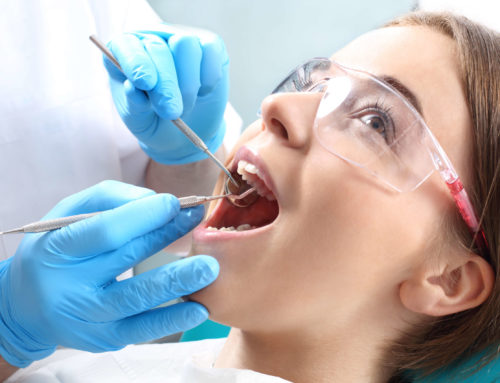Dental Health in Young Children Can Aid Speech Development
As parents, we can’t wait to hear our kids say their first words and watch them grow into confident little talkers. What many of us might not realize is how much dental health impacts a child’s ability to speak clearly. At Snodgrass-King, we get how closely oral health is tied to speech development, and we’re here to help guide you through this important part of your child’s journey.
How the Mouth Affects Speech
Before we get into how dental health impacts speech, let’s take a moment to appreciate just how complex the human mouth is. Speaking isn’t as simple as it seems—it’s a coordinated effort involving several parts, including:
- Lips
- Tongue
- Teeth
- Jaw
- Vocal cords
- Soft palate
- Hard palate
All of these parts need to work together to create the different sounds we use in everyday conversation. When any part of this system isn’t working right, it can cause issues with articulation and pronunciation.
The Role of Teeth in Speech Development
Teeth play a key role in how we develop speech. They do more than just help us chew—they’re essential for:
- Creating boundaries: Teeth give the tongue, lips, and cheeks something to press against to create specific sounds.
- Airflow control: They help manage airflow and air pressure, which is important for making consonant sounds.
- Sound elongation: Teeth help us stretch out sounds like ‘s’ and ‘f.’
- Tongue placement: They guide where our tongue goes and how it shapes to produce vowel sounds.
- Rhythm support: The chewing motion teeth help with also support the rhythm of syllables when we speak.
Specific sounds that rely heavily on proper tooth positioning include:
– /f/ (as in “found”)
– /v/ (as in “virtue”)
– /s/ (as in “sew”)
– /z/ (as in “zip”)
– “ch” (as in “china”)
– “g” (as in “gym”)
– “sh” (as in “shoe”)
– “th” (as in “thirst”)
Common Dental Issues That Can Affect Speech
Now that we know how important teeth are for speech, let’s look at some common dental issues that can impact how clearly a child speaks:
Missing Teeth
It’s natural for kids to lose their baby teeth, but going without certain teeth for too long can affect their speech. For example, a child missing their front teeth might temporarily develop a lisp when trying to say ‘s’ or ‘z’ sounds.
Malocclusion
Malocclusion refers to misaligned teeth or an improper bite, which can include:
- Overbite
- Underbite
- Crossbite
- Buck teeth
- Crowded teeth
- Excessive spacing between teeth
These issues can change how the tongue and lips move, making it harder to form certain sounds correctly. For example, a child with a crossbite might accidentally say ‘T’, ‘N’, or ‘D’ instead of ‘S’, ‘Z’, or ‘L.’
Tongue Tie
Tongue tie, or ankyloglossia, happens when the tissue connecting the tongue to the floor of the mouth (the frenulum) is shorter or tighter than it should be. This can limit tongue movement, making it tough to pronounce certain sounds, especially those that need the tongue to reach the roof of the mouth.
Orofacial Myofunctional Disorders (OMDs)
OMDs are abnormal patterns in the way the oral and facial muscles work. These issues can cause the tongue to rest in the wrong spot, often between the upper and lower teeth or too far forward. Kids with OMDs may have a hard time pronouncing ‘S’ and ‘Z’ sounds.
Poor Jaw Structure
The size and shape of a child’s jaw can have a big impact on their speech. If the jaw is too small, it can lead to overcrowded teeth, which can limit tongue movement and create other dental problems.
Appearance-Related Concerns
Sometimes, kids might feel self-conscious about how their teeth look. Even though this isn’t a physical issue, it can cause them to avoid opening their mouth fully when talking, leading to mumbling or unclear speech.
The Timeline of Speech and Dental Development
Knowing the typical timeline for speech and dental development can help parents catch any potential issues early:
- 6-12 months: Babies get their first teeth and start babbling.
- 12-18 months: Kids usually say their first words. This is also a good time for their first dental check-up.
- 2-3 years: Vocabulary grows quickly, and most baby teeth have come in.
- 3-5 years: Speech becomes clearer, and kids can usually make most sounds correctly.
- 5-7 years: Baby teeth start falling out, and permanent teeth begin to come in.
Every child develops at their own pace, but if there are major delays, it might be a good idea to check in with a dentist or speech therapist.
How Dental Health Impacts Different Aspects of Speech
Here’s a closer look at how dental health can affect various parts of speech:
Articulation
Articulation is about how we physically make speech sounds. Good dental health is key to clear articulation. For example, to make the ‘F’ sound, we need to press our upper teeth against our lower lip. If those teeth are missing or misaligned, the sound can come out distorted.
Phonology
Phonology is the organization of sounds in a language. Dental problems can interfere with a child’s ability to tell similar sounds apart, which can lead to phonological issues.
Fluency
Fluency, or how smoothly we speak, isn’t as directly affected by dental health, but if a child feels self-conscious about their teeth or has discomfort when talking, it can still impact their fluency.
Voice Quality
Believe it or not, dental health can even affect voice quality. Misaligned teeth or jaw problems can change the way the voice resonates, sometimes giving it a nasal tone.
Language Development
While dental issues don’t directly cause language delays, ongoing speech difficulties due to oral health problems can slow down a child’s overall language development if they aren’t addressed.
The Importance of Early Intervention
Catching dental issues early is key to preventing long-term speech problems. Here are some signs that your child might be dealing with dental-related speech difficulties:
- Persistent lisping past the age of 4-5
- Trouble pronouncing sounds like ‘s’, ‘z’, ‘sh’, ‘ch’, ‘j’, and ‘th’
- Mumbling or unclear speech
- Avoiding talking in social situations
- Getting frustrated when trying to communicate
If you notice any of these signs, it’s a good idea to see both a pediatric dentist and a speech therapist. At Snodgrass-King, we collaborate with speech professionals to provide well-rounded care for your child.
Promoting Good Dental Health for Speech Development
Here are some tips to help keep your child’s teeth healthy and support their speech development:
- Start dental visits early: The American Academy of Pediatric Dentistry suggests taking your child for their first dental visit by age one or within six months of their first tooth coming in.
- Practice good oral hygiene: Make sure your child brushes twice a day and flosses regularly.
- Limit sugary snacks and drinks: Too much sugar can cause tooth decay, which can also affect speech.
- Address thumb-sucking or pacifier use: These habits can lead to misaligned teeth, which might impact speech down the road.
- Encourage drinking water: Staying hydrated is good for both dental health and voice quality.
- Watch tongue positioning: Help your child learn to rest their tongue on the roof of their mouth instead of between their teeth.
- Consider early orthodontic evaluation: Early intervention can prevent more serious alignment issues later on.
The Role of Speech Therapy
Even with great dental health, some kids may still need extra help with their speech. Speech therapy can be a big support for children dealing with dental-related speech challenges. A speech therapist can:
- Assess your child’s speech and pinpoint any trouble spots
- Provide exercises to help strengthen the muscles in the mouth
- Teach techniques for pronouncing tricky sounds
- Work on improving overall articulation and fluency
- Collaborate with your child’s dentist for complete care
Dealing with Dental Procedures and Speech
Sometimes, dental procedures are needed to fix issues that affect speech. Be aware that there might be a short adjustment period afterward:
- After getting braces: Your child might need a few days to get used to speaking with the new appliances.
- Following tooth extraction: There may be a brief change in speech, especially if the front teeth are removed.
- After using palatal expanders: These devices can temporarily affect how certain sounds are made, but speech usually returns to normal fairly quickly.
In most cases, any speech changes after dental procedures are temporary. If problems continue, it’s a good idea to consult with your dentist or a speech therapist.
The Psychological Impact of Speech and Dental Issues
It’s important to think about how dental-related speech issues can affect a child’s mental and emotional well-being. Struggling with communication can lead to:
- Reduced self-confidence
- Social anxiety
- Hesitance to join in class activities
- Frustration and behavioral problems
By addressing dental health and speech issues early on, we can help prevent these psychological effects and support your child’s overall well-being.
A Holistic Approach to Dental Health and Speech Development
At Snodgrass-King, we take a holistic approach to your child’s oral health. We know that a healthy mouth is more than just cavity-free teeth—it’s essential for clear and confident communication.
By keeping up with regular check-ups, practicing good oral hygiene, and addressing any issues early, you’re not just maintaining your child’s smile; you’re also supporting their speech development. This helps them communicate more clearly and build confidence in expressing themselves.
Every child’s development is unique, so if you have any concerns about your child’s dental health or speech, please reach out to us. Our experienced pediatric dentists are here to support your child’s oral health and work with speech professionals when needed.
Together, we can ensure your child has a healthy smile and clear, confident speech, helping them share their thoughts, ideas, and personality with the world. There’s nothing more wonderful than hearing your child express themselves clearly, whether they’re sharing about their day, telling a joke, or simply saying, “I love you.”





